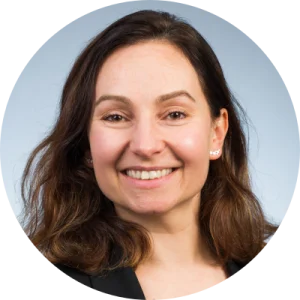
Dr Marianne Aznar
University of Manchester
Awarded: £122,394
The challenge
Radiotherapy is an important treatment for children with sarcoma, especially when the cancer is in the head or neck. But while it helps treat the cancer, it can also affect how a child’s face develops, affecting bone and tooth development and appearance. These changes can impact a child’s confidence, mental health, and quality of life, and can lead to complex surgery.
Currently there is a lack of understanding how different doses of radiation affect facial development, or how age and tumour location might influence this. This makes it hard for doctors to plan treatment, and difficult to give families clear information about what to expect.
How will this project tackle this challenge?
This PhD project is led by a team called SMILE, which brings together doctors, dentists, radiographers, surgeons, researchers, and patients. Their goal is to reduce the risk of facial changes after radiotherapy in children with sarcoma.
Two clinical PhD students, a radiographer and a dentist, are already working closely with patients to study how radiotherapy has affected their facial and dental development. They are developing practical tools for doctors to better assess these long-term effects in the clinic.
With this grant the team will bring in a third expert, a PhD student trained in machine learning and image analysis, to analyse detailed 3D scans of patients’ faces. These scans are already taken regularly after treatment to check if the cancer has come back and can show how healthy tissues have been affected over time. By analysing these images using artificial intelligence, the team hopes to identify exactly which parts of the face are most affected by radiation, and at what ages.
This information could then help doctors adapt radiotherapy plans to avoid damaging sensitive areas, especially in younger children.
What this means for people affected by sarcoma
This research will help doctors give children with sarcoma the safest, most effective treatment with the fewest long-term side effects. In the future, radiotherapy could be personalised to each patient to reduce the risk of facial changes, while still being powerful enough to treat the cancer.
It will also help families better understand the possible effects of treatment on facial development, and guide doctors in caring for survivors who experience facial changes. The tools developed could be used in clinics across the UK to improve follow-up care and even support facial reconstruction, where needed.
This project is our 2024 Roger Wilson Research Award, awarded to one research each year in recognition of Sarcoma UK’s founder.









